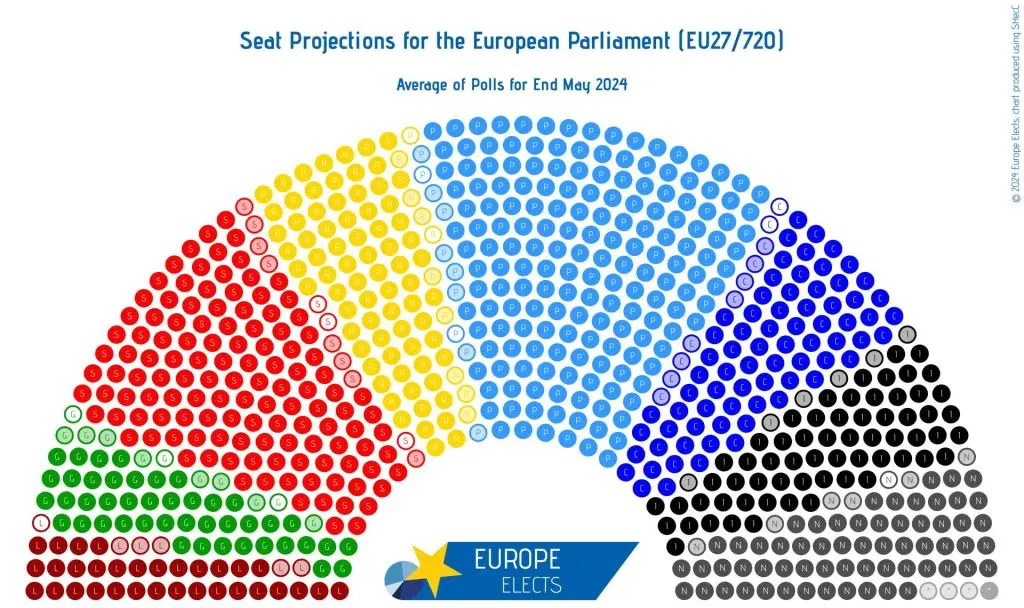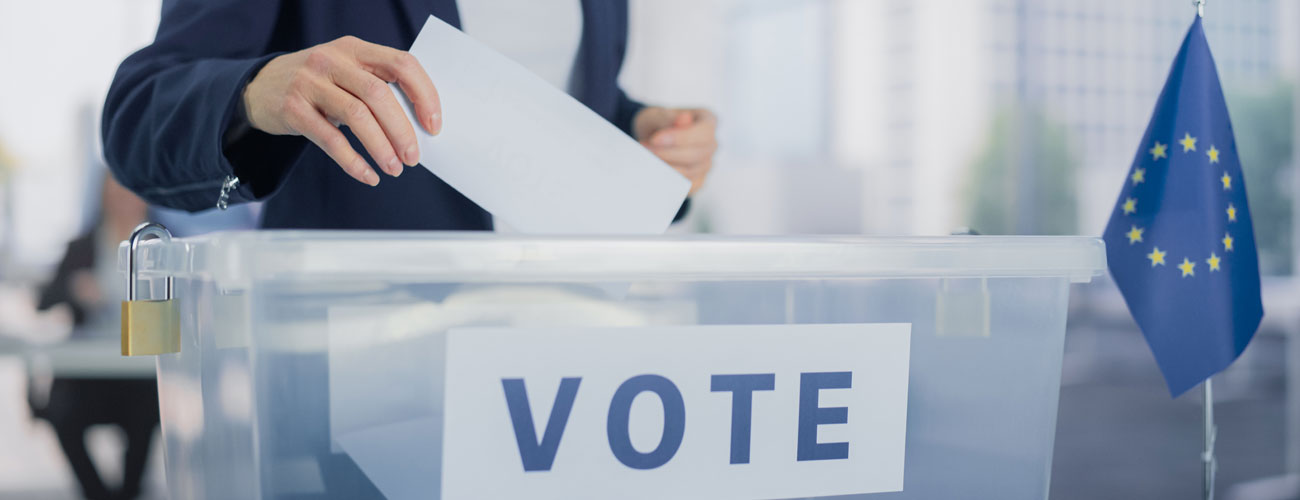Europeans will go to the polls this week to elect members of the European Parliament. From 6 to 9 June, eligible voters in 27 EU Member States will cast their ballots, determining who represents them in the world’s only transnational Parliament.
It’s fair to say that European elections have historically received far less public attention than their national counterparts. But that doesn’t mean the Parliament is toothless: in fact, its members often wield more extensive policy-making power.
Europe’s policy when it comes to safer nicotine products are a case in point. In 2012, the European Commission sought to effectively ban vaping altogether. The only thing that prevented them from doing so was the strong objections of Members of the European Parliament (MEPs), who had found their vaping constituents angry with what the executive had proposed.
History might be about to repeat itself.
Institutional inertia and policy-based evidence
It seems more likely than not that the next Parliament will be the one to work on a revised version of Europe’s tobacco control rulebook. Those will come initially from the European Commission.
Our sources think that the publication of a public consultation on proposed measures will take place in 2025. We’re also told that the Commission is busy preparing a new Europe-wide survey on attitudes towards tobacco products: a sure sign that they are teeing up some kind of proposals.
The Commission is the EU’s executive branch, and it will make the proposals that are debated in Parliament. However, the elections are unlikely to affect what they propose: the Commission’s health department has a long-held view that safer nicotine products should be restricted where they can’t be banned, and no amount of advocacy or data will change their minds.
But that is what the Commission does: it proposes. Decisions are made by both EU Member State governments and – crucially – the European Parliament. Which brings us onto the importance of the upcoming elections.
What will the elections change?
Most of the news narratives focus on the expectation that populist right wing parties will increase their representation. That might be somewhat of an overstatement. The centre-right parties, which come together under the umbrella of the European People’s Party, will remain the largest group, and the socialists the second largest.
Projections from Europe Elects – who work to interpret polling across the continent – predict that while conservative and liberal parties will hold the majority, populists on the right will have more influence when it comes to the raw numbers:

Whatever your views on that trend more generally, it’s a good sign for the continued availability of safer nicotine products.
The EPP Group (centre right, light blue) have tended to favour regulation over prohibition, as have the liberals (yellow), conservatives (dark blue) and nationalists (black and grey). The socialists (red), greens (green, obviously) and the far left (dark red) have tended in the opposite direction.
This is not a hard and fast rule. Dutch liberals, for example, will favour more restrictions; while Swedish Socialists, who have seen tobacco harm reduction work at scale back home, will instinctively oppose prohibition.
But in general, if these projections are accurate, consumers should be able to find a majority that will let them continue to use the safer nicotine products they currently enjoy.
Once the Commission makes its proposals – which will no doubt seek to restrict harm reduction as much as possible, it will be the job of the Parliament to curb the worst prohibitionist instincts of the Commission.
A word on choreography
The new Parliament will meet for the first time in July, when it’s expected that two thirds of MEPs will be starting their first term. At the July sessions, MEPs will receive their committee assignments, where we will learn who will serve on the powerful Environment and Public Health Committees which will undertake the bulk of the work on tobacco and harm reduction rules.
A proposal is likely sometime in 2025: possibly in the third or fourth quarter. But consumers should start connecting with their representatives as soon as we know who they are (in July – Clearing the Air will provide in-depth coverage of the key players in the new Parliament).
Once the proposal has been made, expect intense lobbying from all sides. It won’t be pretty. Anyone who makes a pro harm reduction argument will be immediately written off by some public health groups and many on the political left as “the tobacco lobby” in an effort to create the narrative that only one side can claim righteousness and piety in the debate.
But among all that noise, the policy details will be up for grabs.
The proposal will first be examined at length by the Parliament’s public health committee, and then by the whole house. Amendments can and will be made at every stage; and if harm reduction in Europe is to survive, it is at this point that it will be salvaged.
So, to sum up: the election taking place this week will be crucial for the future of harm reduction and the survival of safer nicotine products in the European Union. The sooner consumers act to engage with it, the better.



